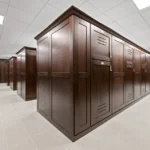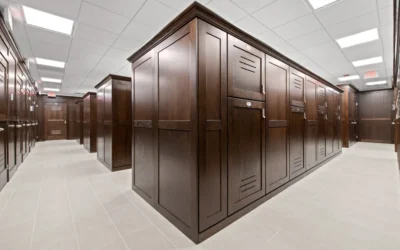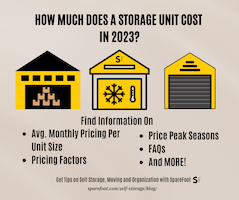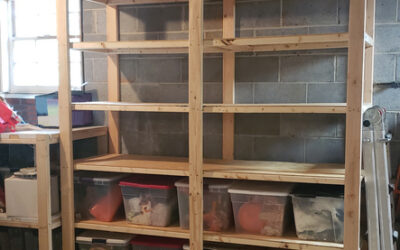Storage Express is pumping up its Midwest portfolio of self-storage facilities, snapping up 12 properties in Illinois.
“The optics of this deal don’t come along every day for us,” said owner and founder Jefferson Shreve. “We jumped at the opportunity.” He declined to give financial details about the Illinois transaction, only to say it was an all-cash, self-financed deal.
Since its founding in 1992, Indianapolis-based Storage Express—started by Shreve while he was still in college—has been steadily growing via new construction and acquisitions, mostly in secondary markets in the Midwest.
The newly acquired facilities are all located in smaller markets, averaging about 35,000 square feet each, and fit into Storage Express’s general niche of avoiding owning larger facilities in large markets.
With the acquisitions, Storage Express now has 106 properties in Indiana, Illinois, Kentucky, Ohio and Tennessee. Without giving specifics, Shreve said he intends to “steadily” grow his portfolio, but stressed the goal is to remain with Storage Express’s current five-state market area.
Adding on to existing
Two weeks before Storage Express purchased the Illinois portfolio, it reopened its newly expanded facility in Clarksville, IN—nearly doubling its size to 85,000 square feet.
Shreve said the expansion reflects the increasingly strong market for self-storage in the Louisville, Kentucky metropolitan area. Though in Indiana, the Clarksville self-storage facility is only five miles away from downtown Louisville, he noted. The expanded Clarksville property, which now has 746 storage units, will serve as the “hub” of Storage Express’s Louisville area operations, which Shreve said he hopes to grow in coming years.
Automated for the people
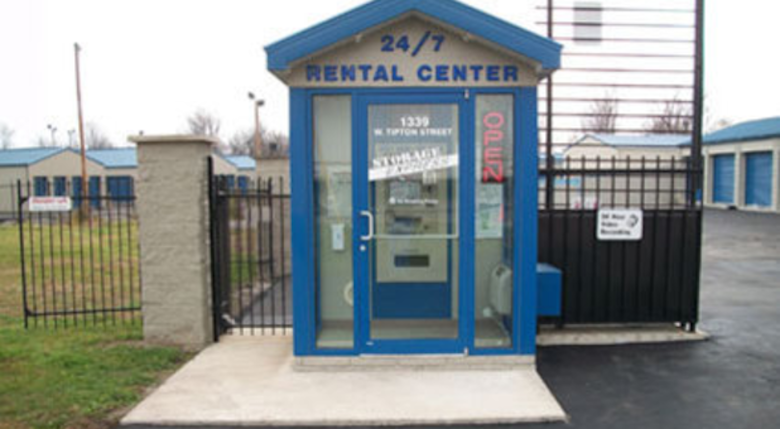
A kiosk allows customers to rent a Storage Express unit any time, day or night.
Besides its small-facilities/smaller-markets strategy, Shreve said his company is somewhat well known within Midwestern industry circles for running fully automated facilities without any full-time managers on site.
Instead, all transactions with customers are conducted either by phone or via on-site ATM-like kiosks that have two-way audio and camera capabilities. A customer can go to a Storage Express facility, order a storage unit, sign an agreement, make a payment and even buy a lock – all via the kiosks.
Customers can also talk to a company representative by calling Storage Express’s call center in Bloomington, Indiana, Shreve said.
“We rarely see a customer in-person,” said Shreve, though he added each facility is visited twice a week by a company field representative who, among other things, scans bar codes on storage lockers to confirm units are indeed properly rented out.
Smaller market strategy
James de Gorter, co-founder of Union Realtime, a self-storage industry research and data firm, said he can’t comment on Storage Express’s on-site technologies. But he said he’s seeing more automation products being touted at self-storage conferences that he attends.
“It makes sense,” he said of automation. “Self-storage facilities are generally low maintenance and lend themselves to (automation).”
As for Storage Express’s small-facility/smaller-markets strategy, de Gorter said that makes sense too, since large publicly traded real estate investment trusts (REITs) are increasingly dominating the self-storage business in larger metropolitan areas, like New York, L.A., Atlanta, Chicago, Dallas and other major cities.
For some privately owned self-storage companies, focusing on smaller markets means less competition, he said. “The flip side is that those markets may not be as lucrative,” he said.
Avoiding new supply pressure
Within Storage Express’s smaller markets, Shreve said he’s also not seeing the self-storage building boom that’s now under way in many larger metropolitan areas. “It’s pretty spotty,” he said of new construction.
Still, Storage Express prefers to build when it can, he said, noting about 60 percent of the firm’s self-storage facilities were built by the company. Currently, the company has five facilities under new construction or undergoing expansion, all of them in Indiana, he said.
And Storage Express is financed it on its own – with no outside investors – via savings and bank loans, Shreve said.
